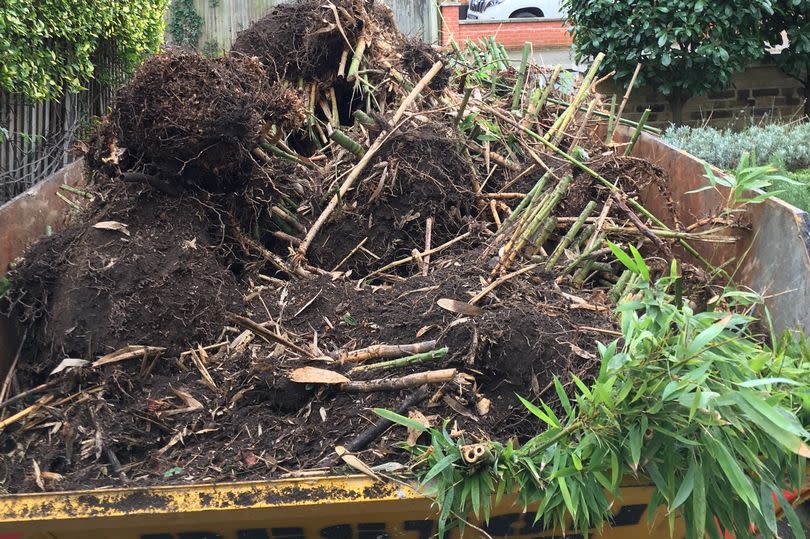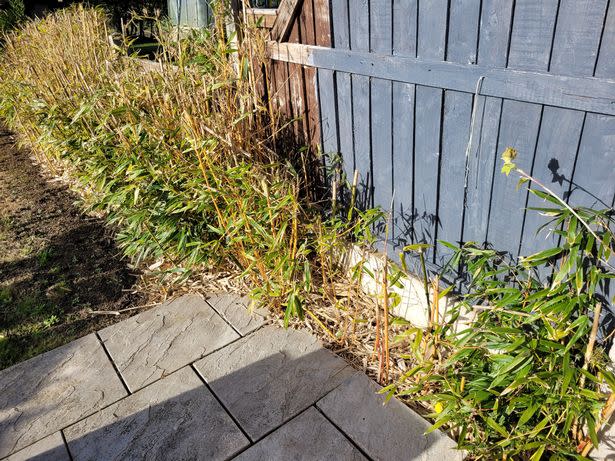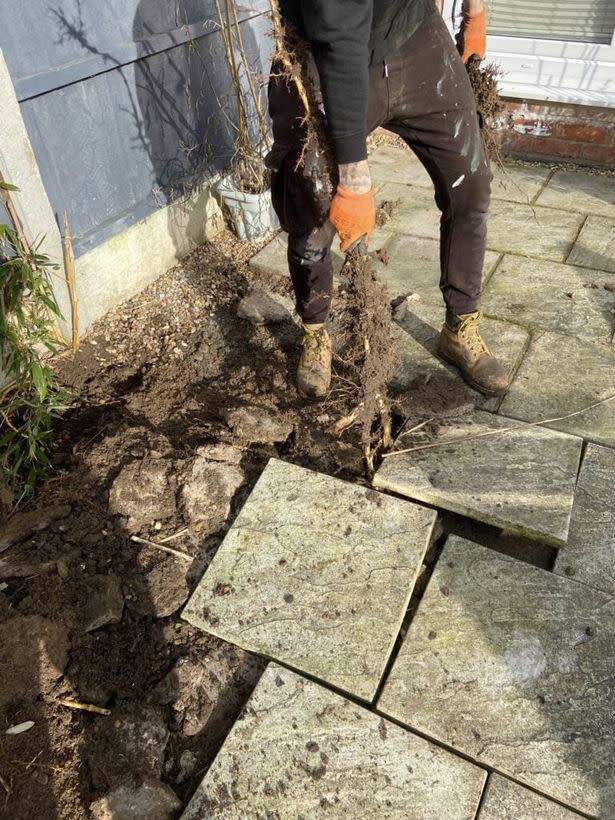Invasive bamboo causes £10,000 damage to home and spreads over multiple gardens

An invasive bamboo that ran wild across several gardens in a Cheshire town has cost £10,000 of damage to the properties.
The bamboo, which was planted along a boundary in one garden in Knutsford, started off as a landscaping gardening project – but ended up costing thousands to be uprooted.
Homeowner Isobel Chetwood wasn’t aware that her neighbours had planted bamboo along their adjoining boundary, but quickly came to realise there was a problem when shoots began to appear in a raised bed she had designated for strawberry plants.
She began to cut down the new growth, but it was a losing battle as the plant took hold.
Chetwood said: “Last year the bamboo shoots started appearing prolifically and I could see it was clearly coming from next door.

“My raised bed is constructed of brick and heavy wooden sleepers, which you’d think is fairly robust, but in no time at all the bamboo was forcing its way beneath the sleepers, pushing them apart.
After Chetwood approached the landlord of the property next door to alert him to the problem, he treated the infestation with weedkiller.
But the plant then began to grow more vigorously in Chetwood’s garden with new shoots emerging at an alarming rate.
An invasive plants specialists were then brought in to survey the infestation with a mechanical digger excavating enough bamboo root and rhizome to fill two entire skips.
The work involved digging up a patio to remove the extensive network of bamboo runners embedded underneath, costing an estimated £10,000.
The landlord’s insurance covered the cost for Chetwood but he had to pay for the removal on his side as it had been deliberately planted by the tenants.

Bamboo is normally considered to be a desirable garden plant, but if left to grow unchecked can "become invasive", according to the Royal Horticultural Society.
It adds: "The RHS believes avoiding pests, diseases and weeds by good practice in cultivation methods, cultivar selection, garden hygiene and encouraging or introducing natural enemies, should be the first line of control. If chemical controls are used, they should be used only in a minimal and highly targeted manner."
"If you have a bamboo that has got out of hand, you may want to bring it back under control, or just want to eradicate it completely. Complete eradication will take time and patience."
Nic Seal, founder and managing director of Environet – a specialist in invasive species removal, warned that bamboo could lead to legal disputes between neighbours.
He said: “Bamboo encroachment is one of the most common problems we deal with, since unlike knotweed, it’s still being marketed and sold in garden centres up and down the country with no warning of the risks – and planted directly into the ground by unsuspecting homeowners.”

A recent YouGov survey of more than 2,000 people found that almost a fifth (18%) of British adults have had bamboo on their own or an adjacent property.
Bamboo is popular for its ability to create privacy in overlooked gardens and is commonly planted in borders and along boundary fences.
It has the ability to push through brickwork, drains, patios, cavity walls and even cracks or weaknesses in concrete.
Does home insurance cover damage from invasive plants?
Home insurance can cover the cost of the damage of invasive plants such as bamboo, though it would depend on the insurer.
Other invasive plants – particularly Japanese knotweed - are not usually covered by many home insurance providers, according to Environet.
Policyholders usually won’t be covered for the damage unless they hold a specialist Japanese knotweed indemnity insurance, which would pay for professional removal and legal representation if a claim is made against the policyholder by neighbours.
Homeowners are expected to be honest about telling home insurance providers if asked if the invasive plant is found on the property.


